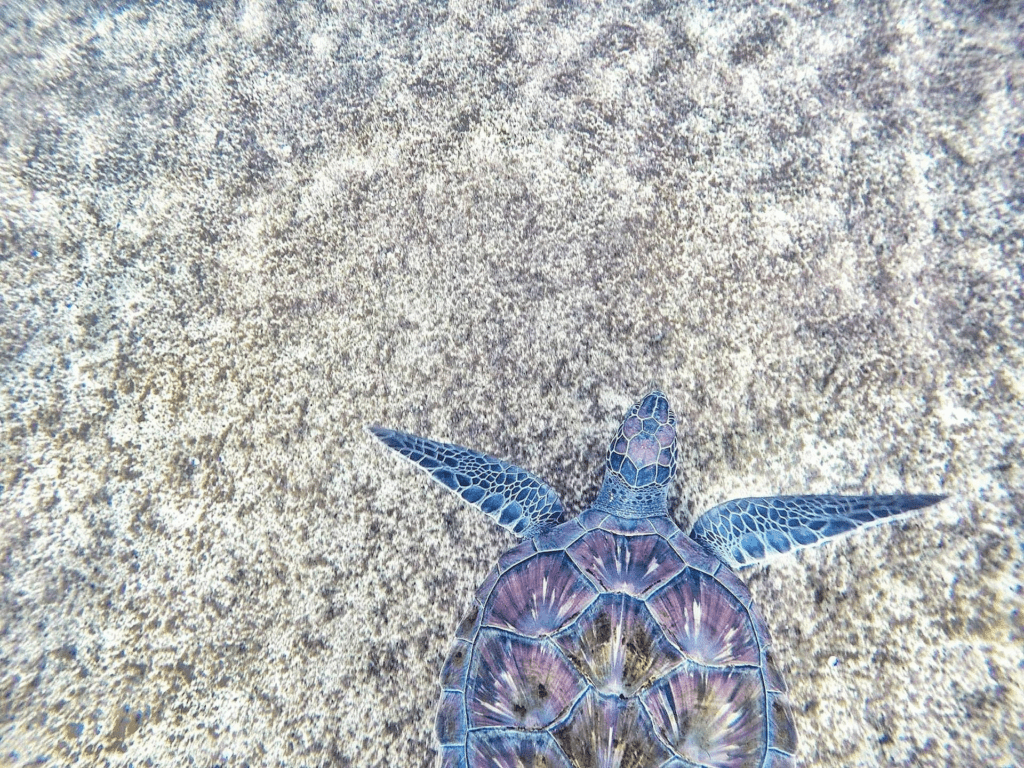
Urgent Challenges Remain to Meet Global Deadlines in a Pivotal Year for the Ocean – Including High Seas Treaty and 30×30
BUSAN, Korea – April 29, 2025
The Our Ocean Conference (OOC) has mobilized $133 billion in funding for ocean action over the past decade, according to a new report launched today by World Resources Institute (WRI) to mark the conference’s 10th anniversary.
However, the report also underscores the urgent need for greater ambition, especially in light of key global ocean targets, including the High Seas Treaty and the 30×30 goal, which calls on countries to protect 30% of the world’s land and water by 2030.
Since its inaugural meeting in 2014, OOC has become a leading platform for governments, businesses and civil society to make commitments advancing marine conservation, ocean-based climate solutions and sustainable blue economy initiatives.
WRI’s analysis identifies over 2,600 commitments for ocean action made at the conference over the past decade, collectively worth approximately $160 billion. As of January 2025, $133 billion has already been delivered or is currently in progress (with 43% of pledges successfully completed; 38% still in progress; and, 18% yet to be started).
The majority of the financial commitments, $86.8 billion, have gone towards ocean-climate projects, ranging from offshore wind and blue carbon to green shipping, with 13 climate-related commitments valued at over $1 billion a piece—underscoring the growing recognition that ocean-based action can support carbon dioxide emission reductions while also delivering marine conservation.
To meet UN SDG 14 (life below water), it’s estimated that $175 billion per year is needed for ocean conservation, while the overall global climate finance goal is $1.3 trillion annually. As world leaders prepare for COP30 in November, integrating ocean-based solutions into the global climate finance agenda is crucial to meeting ambitious targets.
OOC has been particularly effective at attracting support for marine protected areas (MPAs), an essential tool in ocean conservation at a time when marine systems face unprecedented pressure from overfishing, pollution, and warming waters. 42% of all the world’s MPAs implemented globally can be traced to announcements made at OOC, covering a total of 8.5 million square kilometers- an area roughly the size of Brazil, according to an independent study from Oregon State University.
These voluntary commitments take on renewed significance in this critical year for the ocean, helping to deliver on recent landmark treaties and global ocean goals. The High Seas Treaty (BBNJ) and the Kunming-Montreal Global Biodiversity Framework both demand unprecedented ocean protection, including the “30×30” target to protect 30% of the world’s oceans by 2030. So far, just 21 countries have ratified the High Seas Treaty, with anticipation that 60 can be reached by the UN Ocean Conference in June for it to enter into force.
“The 10th Our Ocean Conference will encourage the international community to take immediate action to address the crisis our ocean is facing under the slogan ‘Our Ocean, Our Action.’ The conference will primarily focus on the achievements and success stories over the past 10 years while also establishing the future direction for international cooperation over the next decade. It is set to be a significant moment for international cooperation, providing a crucial foundation for our collective efforts towards a shared future” said Do-hyung Kang, Minister of the Ministry of Oceans and Fisheries of the Republic of Korea.
“Our research demonstrates that the Our Ocean Conference is a leading platform for mobilizing finance and vital ocean action. But greater global ambition is required to address the urgent challenges. For example, we know that readily available ocean-based solutions can deliver up to 35 percent of the annual greenhouse gas emission cuts needed by 2050 to limit global temperature rise to 1.5°C. It’s time the ocean’s potential was realized”. Dr. Tom Pickerell, Global Director, WRI Ocean Program.
“From ecotourism, to green shipping, to renewable energy, vibrant sustainable development and a healthy ocean can go hand-in-hand. The Our Ocean Conference is an important champion of this vision, and one I hope will inspire both the public and private stakeholders to become more involved worldwide.” Dr. Dionysia-Theodora Avgerinopoulou Greek Prime Minister’s Special Envoy for the Ocean; Member of the Hellenic Parliament; 2024 Our Ocean Conference Coordinator.
WRI’s progress report includes a series of recommendations to improve OOC outcomes moving forward, including:
- Actively fill geographic and policy gaps in OOC commitments to increase inclusion and mobilize commitment across Africa, Latin America and South Asia.
- Strengthen partnerships with governments while scaling engagement with the private sector, academia, intergovernmental organizations, local communities and underrepresented groups.
- Improve the OOC online platform to enhance data quality, consistency and transparency.
- Conduct further thematic analysis of commitments including deep dives, regular progress assessments, and an exploration of implementation barriers and solutions.
- Increase coordination between OOC and other multilateral forums, including UN Ocean Conference, to address the risk of duplication between voluntary commitment platforms and drive to global ocean ambition.
- Explore options to provide more concrete support for organizations to implement their commitments through internal knowledge sharing and external partnerships.
10 year report link:
www.ouroceanconference.org/10-






